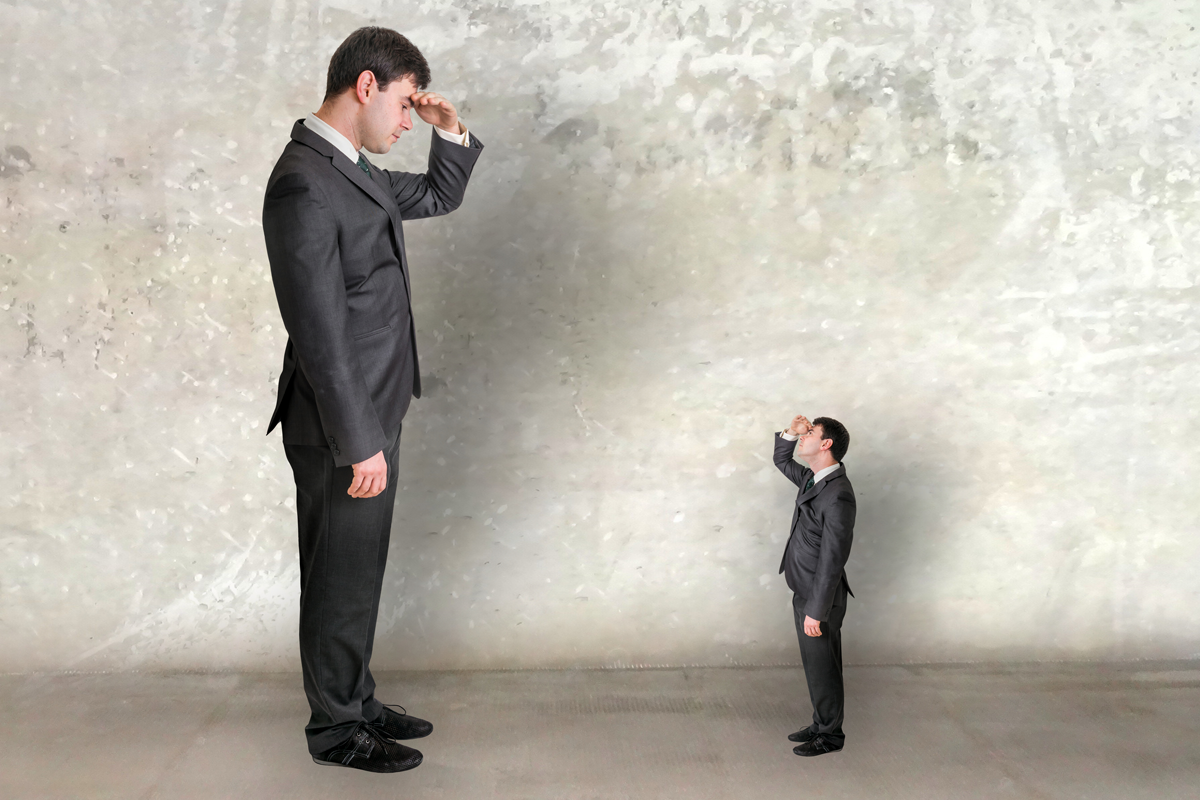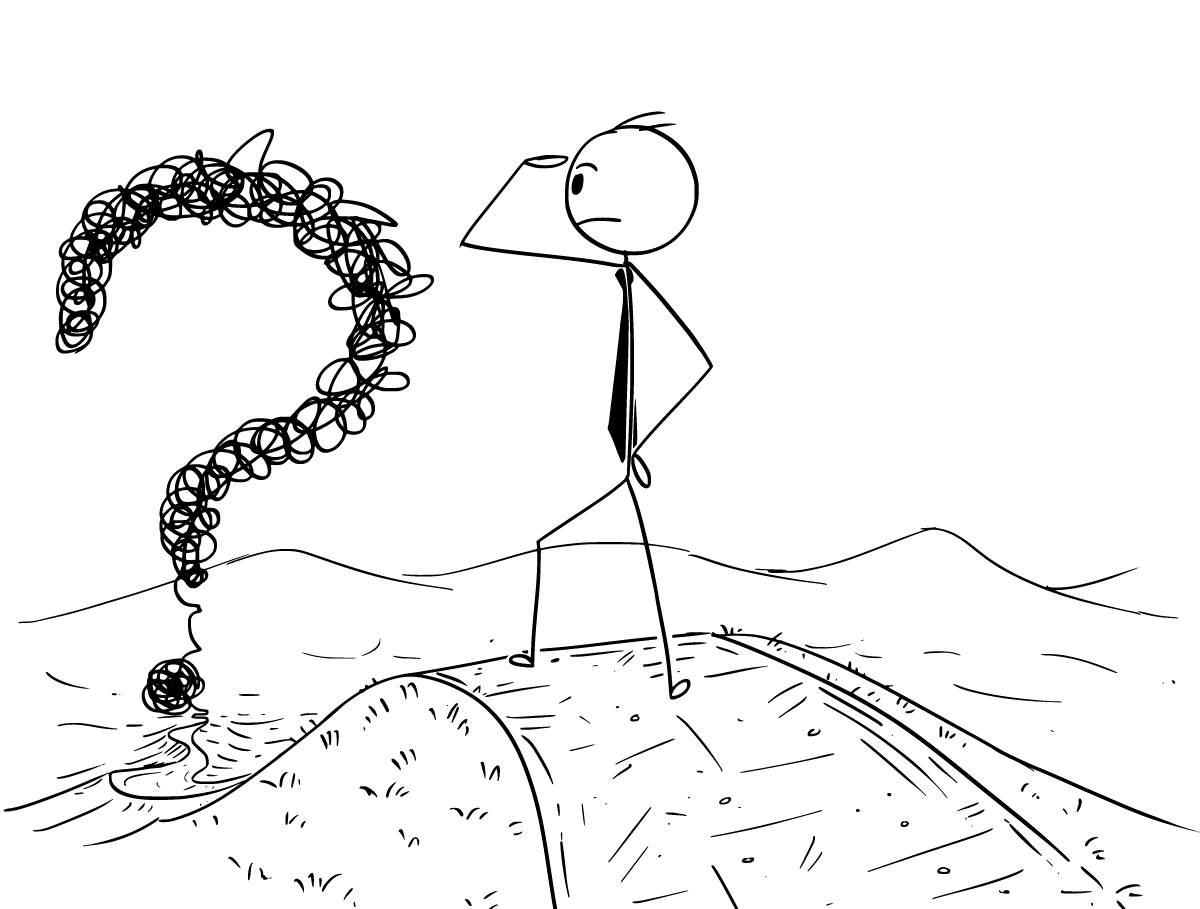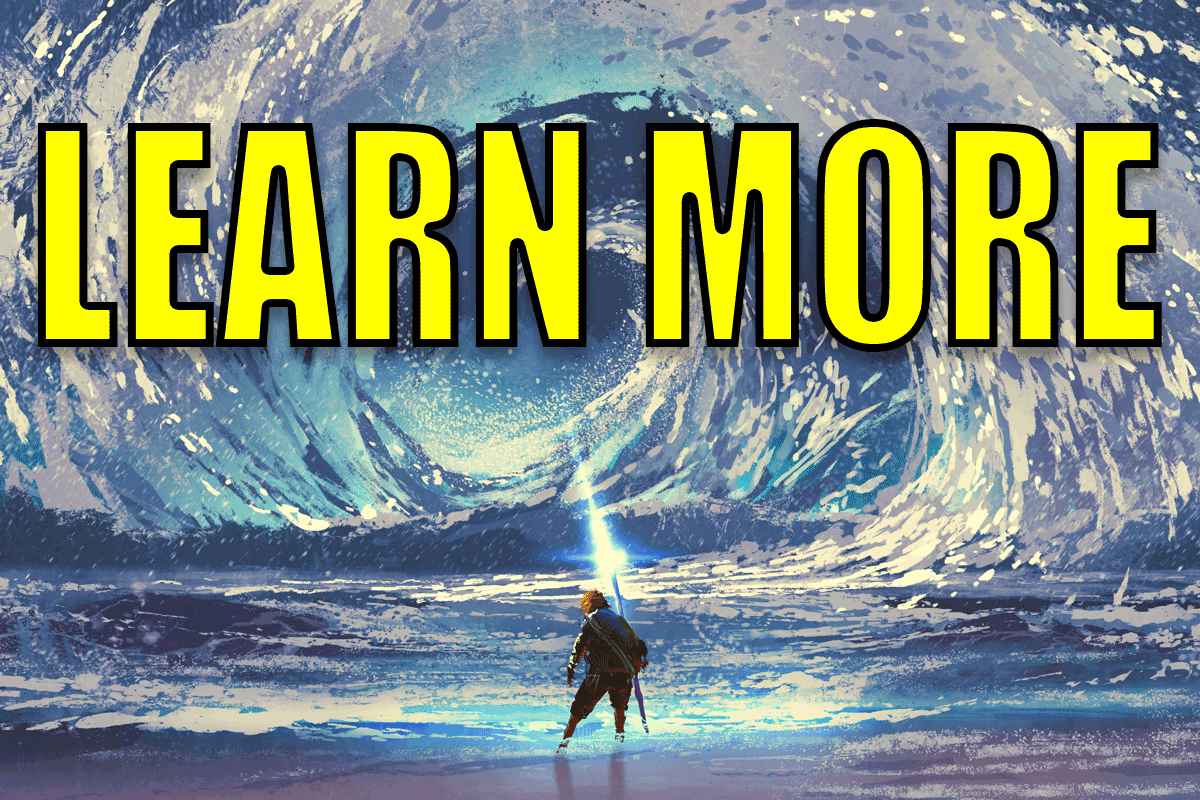The Guy In Charge Said So

One of the go-to ways for most of us silly humans to figure out what’s what is to see what somebody in charge says. Study after study shows this. They put ten people in a room, and dump in an unexpected and complicated task. Time after time, people will invariably self-organize, often quickly and subconsciously, into a hierarchy.
This means that no matter who you stick in a room, ninety percent of people, when something unexpected comes up, will have the immediate response of looking around and finding somebody to tell them what to do.
But they take the top people in each group, and stick them in a room and do the same thing. The room is filled with ten people who were all the leaders in previous rooms. And nine out of ten people will have the very same reaction. They will look around for somebody to tell them what to do.
Alpha Of The Alphas
The term alpha has gotten a lot of action in the past few years. But here we mean it very strictly as somebody who is a recognized leader in a group with a specific task. Without any specific task, and a bunch of people just milling around and enjoying themselves, there is no alpha.
Interaction Alphas
However, once two people start an interaction, verbal or not, the game is on. There will be one and only one alpha. Two people sitting next to each other on a plane will wrestle for control of the arm rest. Two couples sleeping in the same bed will wrestle for the covers. A mix of guys and gals in a common office will wrestle for control of the room temperature.
Contextual Alphas
It’s possible for two people to be in an interaction, and one be the alpha of one frame of reference, and the other to be the alpha in another frame of reference. A husband may surrender control of the covers night after night, but his wife may grudgingly get up when he does and fix his coffee so it’s ready when he gets out of the shower.
Hierarchical Humans

This is due to our hierarchical nature. Humans have been around for a long time. We’ve been living together in social groups for millions of years, and we’ve only recently developed language. Every group of social animals is organized as a hierarchy. The simple reason is a group of animals who must expend and consume calories (taken from their environment) and avoid predators are much more efficient as a hierarchy. Any top down organization of any kind is much more efficient than a group of betas with no leader.
If you’ve ever been in a meeting in any organization where nobody wanted to assume the leadership role, if only temporarily, you know how long and unproductive these meetings can get. Imagine if the entire human race had operated like that! We’d have died out a long time ago.
Maybe we should try that valley over there!
Are you saying you think we should go there?
Oh, no, I’m just saying, what do you guys think?
Well, if everybody agrees…
Do you think we should try hunting over there?
No, I mean, if that’s what everybody else wants…
Hey, is that big wall of ice getting closer?
Is that what you think?
No, I mean, I don’t know, what do you think?
Hey, isn’t that tiger running at us awfully fast?
So, you’re saying we should run away then?
Well, I mean, I think, I mean, what do you guys think?
Hunger Comparison

We can use hunger as an easy proxy to see how something that was effective back in the days of survival of the fittest isn’t so useful today. Then we’ll extrapolate that to our authority instinct. Back then, getting food was dangerous. Getting food was hard work. So only those that were always hungry would survive. If we compare an imaginary Tribe A and Tribe B, we can see how hunger would be a very useful survival instinct.
Tribe A – The Non Hungry Tribe
Let’s imagine that Tribe A only got hungry when they were about two days away from starving to death. Meaning they never actually felt hungry until they were literally skin and bones. Only then did they decide to go out and kill something, or at the very least dig up some roots.
Tribe B – The Always Hungry Tribe
Then we can imagine Tribe B, who was always hungry. Unless they ate something within the last eight hours, the only thing they could think about was getting something to eat. This meant that every single day, they were thinking about finding and killing something. Which meant they probably never allowed themselves to be far away from any food of any kind.
Tribe B Wins Hands Down
Tribe A might have survived, but over the hundreds of thousands of years, Tribe B would easily out-populate Tribe A. So even though we humans can go a couple of weeks without food, it is extremely impossible to do this unless absolutely necessary. So even when ancient humans had enough body fat to survive that long, they still felt unconsciously compelled to eat as much and as often as they could.
Hunger Is An Instinct
We refer to this drive as hunger, and we call it eating, but it’s an instinct. It drives our behavior whether we like it or not. We can’t open a bag of chips and only eat one. Losing weight requires a super human amount of constant will power for most normal humans in western society. More than sixty percent of us are overweight due to the strength of our hunger instinct.
Authority Instinct Defined

Our tendency to immediately look around for somebody to tell us what to do is also an instinct. It is not a logical conclusion to some objective reasoning. Ninety percent of people will immediately, automatically and subconsciously look for somebody to tell them what to do when something unexpected comes up.
Even though this is an internal process, whereas hunger impossible to not notice, we will assume it is just as strong, as it was just as necessary for our survival in ancient times. Just like we cannot not obey our hunger instinct, we cannot not obey our authority instinct.
Authority Works Both Ways
Remember the idea that one out of ten people will naturally assume a leadership role when nobody else will. Consider that this is just as natural as needing to be told what to do. As if all of us have an authority instinct that says, “Find somebody in charge. If nobody wants to be in charge, be in charge.”
How would this work? What one single strategy could create the quick and unconscious decision making process that makes one guy become the leader? Understand this has been studied extensively (See more here) and it almost always happens quickly and unconsciously.
Authority Sorting Mechanism
One way would be if each of us a reciprocal leader-following filter. We quickly look around the room, and judge each and every person through the filter that asks the question: “Could I lead that person? Could I follow that person?”
Referencing Social Proof
Since we also respond powerfully to social proof, if others are looking at one particular person as a potential leader, that will make us more likely to answer yes to the, “Could I follow that person” question. And if many people were looking at us while internally answering “yes” to the “Could I follow that person” question, we would be simultaneously looking at them while answering yes to the “Could I lead that person” question.
This would seem to answer the question of how we quickly sort into hierarchies, even with people we’ve never met before. This is an instinct and it happens before we really know what’s going on. However, this is very difficult to understand from an internal viewpoint.
How The Mind Works

Plenty of studies suggest that up to 95% of the time, our mind-body system is reading and responding to our environment without any needed input from our conscious minds. Meaning our conscious minds are the last to know what’s happening. Curiously, our conscious minds tends to hallucinate the order of events. It has a need (perhaps due to our ego, or maybe that need is our ego) to imagine our conscious mind (the observer, or awareness inside all of us) is in charge.
As if we (our conscious minds) read the situation, think about what to do, and respond. But in reality (when they hook people’s brains up to see what’s really happening), the conscious mind, that awareness part of us that thinks we (or it) is in charge, is actually a lagging element. Meaning as best as the best scientists can tell, our conscious mind watches things as they happen. It doesn’t decide squat!
Milgram Experiment
This was a shocking and groundbreaking experiment conducted shortly after WWII. The world was still reeling from the idea that an industrially advanced, European country like Germany would just decide it was OK to round up and murder six million people. That kind of thing can’t really happen unless everybody is more or less in on the game.
The Experiment
There were three people. The doctor, the teacher and the learner. The doctor was doing an experiment on memory. The teacher would ask the learner a question, and then give him an electric shock if he got the wrong answer. It was supposed to help him remember. But in reality, the learner was in on it, and the shocks weren’t real. The real test was to see how much of a shock the teacher would give the learner. (See more here)
In the beginning, everybody expected most to simply refuse to shock the poor guy. But that’s not what happened. Nearly 70% of teachers kept shocking the learner, (thinking the shocks were real) even while the learner begged for them to stop, even pretending he was having a heart attack. This study has been repeated several times with the same result.
Implications of Milgram

It seems that when there is an authority present, we humans will do whatever they say, even if some guy is getting physically hurt and is begging for us to stop. At the same time, nearly everybody says, “Yea, I’d stop! I’d tell that doctor to go F himself!” But every time, almost 70% of people go right along with it.
Authority In Isolation
Keep in mind this is one authority figure, and one single person going along with the authority figure. That 70% of us who turn into obedient followers will significantly increase when you have one authority figure and many people following his or her orders.
Deeper Implications
We can imagine the horror of Nazi death camps, genocides and death cults. A charismatic leader, a group of followers. Then things spin out of control and everybody dies. Most death cults start off innocently enough. Nobody starts a simple church out in the country with a five year plan of mass suicide. But we don’t have to worry, because we won’t join a death cult, right?
Expert Opinions

Most of us get our ideas from others. Very few of us have laboratories in our garage and can afford to spend time doing research to verify facts. The following is an example, so please don’t take it seriously. But how do you actually know that the Earth is round? Don’t get me wrong, it is a sphere. But suppose it really was a conspiracy? How would you know? If you, and only you and your tools had to prove that the earth was really a sphere, how exactly would you do it?
Jump in your spaceship, fly far enough away and take a picture? The ancient Greek’s deduced the curvature of the Earth, but nobody believed them, because there was no evidence other than looking around and seeing a bunch of flatness.
Verifying Truth Is Difficult
Nearly everything that we think is true comes from trusted experts. If any of us got into an argument with anybody else about any subject, our main argument would be, “the guy on TV said so.” Of course, we wouldn’t say that exactly, but that would be the structure of our argument. A favorite way to say this is:
It’s already been proven.
But unless we have the proof and all the data that is allegedly in the proof, all we are really saying is, “the experts on TV said so, so I believe it’s true.”
Add In Social Proof
What makes independent thinking even more difficult is when we surround ourselves with people that believe the same things we believe. The Asch experiment showed that when an individual is surrounded by a group that purposely chooses the wrong answer to a simple geometry question (that an elementary kid could answer correctly) that individual also chooses the wrong answer. (See more here)
Experts Straying From Fields Of Expertise
Here is a common career trajectory for many scientists. They start off interested in some specific branch of science. Then they get a PhD. They do a bunch of actual research, which is published in peer reviewed journals. But then they kind of top out. Teaching students and publishing in journals only read by other scientists doesn’t do it for them anymore.
So they write a book. A book targeted at the mainstream. Mainstream books are not peer reviewed. It has the science left out, because the intended audience doesn’t know much about science or math. The metaphors used are not exact. This gives the general public a false impression of the actual scientific underpinnings.
The first book is a success. So he writes another book. Now he’s slipped away from scientific thinking and more into entrepreneurial thinking. They are very different. Scientists follow facts and publish their findings in journals that are scrutinized by other scientists. One error and their reputation is ruined.
But once they start publishing books for the general population, they are instead focused on sales. The accuracy of the science is no longer the most important thing. Sure, they need to keep it fairly close to the scientific ideas, but that isn’t their driving motivation. Their driving motivation is sales.
Social Proof Of Millions

Now you have these watered down ideas having social proof of millions. How much more difficult would it be to disagree with these ideas, even internally? Especially when these guys are literally on TV, and being interviewed by folks that know nothing about science or mathematics or economics (or whatever their original degree is in).
Nobel Prize Winners In Economics
Technically, there isn’t a Nobel prize in Economics, but they still call it a Nobel prize. It’s close enough. But economics is not really a science. It’s very vague. Plenty of theories absolutely and completely disagree with each other. Yet competing theories (for example, Hayek and Keynes) each have gotten a few Nobel prizes. If these theories are in direct contrast for each other, what is the prize for?
Even if it’s for work in a field, at least one of the prizes has to be given for work in a field that is totally incorrect. Yet economists are some of the most powerful people in the world, as those who work for governments and central banks help create policy that affects the entire planet.
What If Nobody Really Knows?

What if most experts are wrong? What if most science books that are written for the general public are only a very vague and incomplete description? What if most ideas about science, about the world, about important things like economics are absolutely wrong? Consider this idea. You take a science class in college. You study hard and get a B. How much do you remember about that subject in year?
How much more do you study a high school or college textbook, filled with accurate scientific information, than you do a mainstream non-fiction title on your kindle? If the information in a textbook is scarcely remembered and quickly forgotten, what does that say of the average knowledge of the average person on the street?
Very few people read non-fiction. Very few people pay close attention to the “experts” even when they are on TV. If we did live in a total land of hallucination, and everything we think was true was absolutely made up from scratch by those who were in charge, how would we know?
Knowledge and Belief
Sure, we all have things in our heads we believe to be true. We trust experts to do the thinking for us. We believe them. After all, why would they lie? Yet since the dawn of time, experts have been wrong over and over again.
At their time, they were the experts that everybody believed. But then a couple hundred years go by, and we look back and laugh at them for believing in such silliness. We believe that a lot of things are true. But how, exactly do we know? What will people a hundred years from now say about what we believed?
Do we REALLY think that after tens of thousands of years of slow scientific advances, we just HAPPEN to be living at the time when the “experts” finally figured everything out: (Pro Tip: This is what all experts believed at any given point in time!)
Question Everything!
Consider taking a little bit of time and learning how to think for yourself. Accepting ideas that have “been proven” by “experts” is easy! Anybody can do it. Thinking for yourself may be the bravest and most courageous thing you ever do!
Learn More

Mind Persuasion has plenty of books and courses all designed to help you get the most out of your brain, and your life.
Mind Persuasion Books
Mind Persuasion Courses